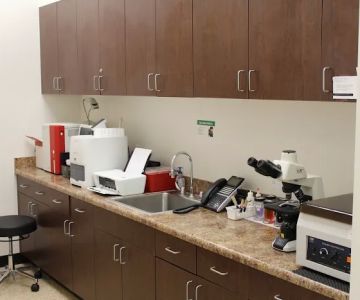What Do You Need to Do to Become a Veterinarian? A Complete Guide to Becoming a Vet
- 1. Understanding the Veterinary Career
- 2. Educational Requirements: Starting with a Bachelor's Degree
- 3. Veterinary School: Your Path to Becoming a Veterinarian
- 4. The Importance of Practical Experience in Veterinary Training
- 5. Getting Licensed and Certified to Practice Veterinary Medicine
1. Understanding the Veterinary Career
Becoming a veterinarian is a highly rewarding career choice for those passionate about animals and medicine. As a veterinarian, you will diagnose and treat illnesses, perform surgeries, and provide preventive care for animals. The role of a vet extends beyond caring for household pets; it can also involve working with livestock, exotic animals, and wildlife. Understanding the scope of this career is crucial before embarking on the educational journey, as it requires a blend of science, compassion, and hands-on experience.
2. Educational Requirements: Starting with a Bachelor's Degree
The first step toward becoming a veterinarian is obtaining a solid educational foundation. Most veterinary schools require applicants to have a bachelor’s degree, typically in a field like biology, animal science, or chemistry. This undergraduate education equips future veterinarians with the essential knowledge of animal biology, chemistry, and physiology. Additionally, aspiring veterinarians must maintain a high GPA and complete specific coursework in subjects like physics, biology, and mathematics to qualify for veterinary school.
3. Veterinary School: Your Path to Becoming a Veterinarian
After earning a bachelor’s degree, the next step is to attend veterinary school, which typically lasts four years. Veterinary school provides both classroom instruction and hands-on training. Students study subjects such as animal anatomy, pathology, pharmacology, surgery, and diagnostic techniques. During this time, students also have opportunities to gain practical experience by working with animals in clinical settings. Admission to veterinary school is highly competitive, so gaining practical experience through internships or volunteer work at animal clinics or shelters is crucial for enhancing your application.
4. The Importance of Practical Experience in Veterinary Training
Hands-on experience is a vital part of becoming a veterinarian. During veterinary school, students participate in clinical rotations where they interact directly with animals and practice diagnostic skills under the supervision of experienced veterinarians. In addition to these clinical experiences, many students seek internships or externships at animal hospitals, farms, or research institutions to gain exposure to various aspects of veterinary care. This experience helps students build confidence and refine their skills, making them well-prepared for real-world veterinary challenges.
5. Getting Licensed and Certified to Practice Veterinary Medicine
Once veterinary school is completed, aspiring veterinarians must pass a licensing exam to practice in their respective countries or regions. In the United States, this involves passing the North American Veterinary Licensing Exam (NAVLE) and fulfilling state-specific requirements. Some veterinarians may also pursue additional certifications or specializations in areas like surgery, dermatology, or internal medicine to further enhance their expertise. Continuing education is essential throughout a veterinarian’s career to stay updated on the latest advancements in animal health care.











